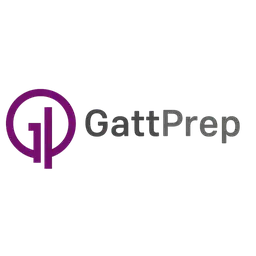Preparing for the Basic Education Certificate Examination (BECE) can feel overwhelming—so many subjects, so many topics, so little time. But here’s a powerful secret top-performing students know: past questions aren’t just for practice—they’re predictors. When used wisely, they can help you unlock the patterns behind WAEC exams and study with sharp focus and confidence.
In this blog, we’ll explore how you can study smarter by using past BECE questions to predict, prepare, and perform better in the real exam.

🎯 Why Past Questions Matter
WAEC examiners don’t reinvent the wheel every year. They pull questions from:
Recurring topics in the syllabus
Common formats and structures used in previous years
Variations of previous questions with changed numbers or contexts
By analyzing these patterns, students can anticipate what might appear in the next exam, rather than trying to memorize everything.
Step-by-Step Guide: Predicting from Past BECE Questions
1. Get at Least 5–10 Years of Past Questions
The more years you study, the clearer the patterns. Collect papers for each subject, especially English, Mathematics, Science, and Social Studies.
2. Identify Frequently Asked Topics
Create a checklist for each subject. Example for BECE Science:
| Topic | Years Asked (Sample) |
|---|---|
| Photosynthesis | 2018, 2020, 2022 |
| Soil Erosion | 2016, 2019, 2021 |
| Water Cycle | 2017, 2020, 2023 |
If a topic appears at least 3 times in the last 5 exams, it’s a high-priority area.
3. Spot Repeated Question Styles
Pay attention to the way questions are asked. For example:
English Comprehension often includes questions like: “What is the meaning of…?” or “What lesson can be learnt?”
Mathematics frequently includes area and perimeter calculations, word problems, or probability.
Social Studies likes questions on environmental issues and good citizenship.
Learning these patterns helps you prepare your answers with the expected structure in mind.
4. Use “Hot Topic” Predictions
Some topics are favorites of examiners and appear almost every year. Examples:
English Essay: Letter writing (formal/informal), story writing, and speech writing.
Maths: Fractions, percentages, and construction.
Science: Respiration, states of matter, the human body.
Social Studies: Governance, rights and responsibilities, the environment.
Spend extra time mastering these.
5. Practice Timed Questions Under Exam Conditions
After identifying hot topics, simulate the exam using real past papers—no notes, no help. Then mark and review your answers carefully. This helps reduce exam fear and improves time management.
6. Track Your Mistakes
Keep a notebook of the questions you got wrong, including:
The topic of the question
What went wrong (wrong formula, poor grammar, misunderstood instruction)
The correct method
Over time, your notebook becomes a personalized revision tool.
Bonus Tip: Combine Past Questions with WAEC Syllabus
Don’t rely on past questions alone. Match them with the BECE syllabus so you don’t miss out on new or neglected topics that may return. This also helps you revise more completely.
Smart Revision Strategy
Here’s a weekly plan using past questions:
Monday: Select 1 subject → Review past questions from 3 years → Practice similar ones
Tuesday–Thursday: Focus on high-frequency topics from those questions
Friday: Do a full mock test from a previous year
Weekend: Reflect, review your mistakes, and reattempt weak areas
Repeat weekly with different subjects.
Final Thoughts
Using past BECE questions the smart way turns your revision from scattered to strategic. You’re no longer guessing what to study—you’re predicting with precision. This approach helps you master likely topics, understand the examiner’s mindset, and walk into the exam room with confidence.
Remember: BECE success isn’t just about studying hard—it’s about studying smart.
Ready to start? Check out our curated BECE past questions on our website and explore organized question banks, topic-by-topic breakdowns, and revision tools designed to help you prepare smarter.
Start predicting, practising, and passing with confidence—because success is within reach when you study with strategy.









